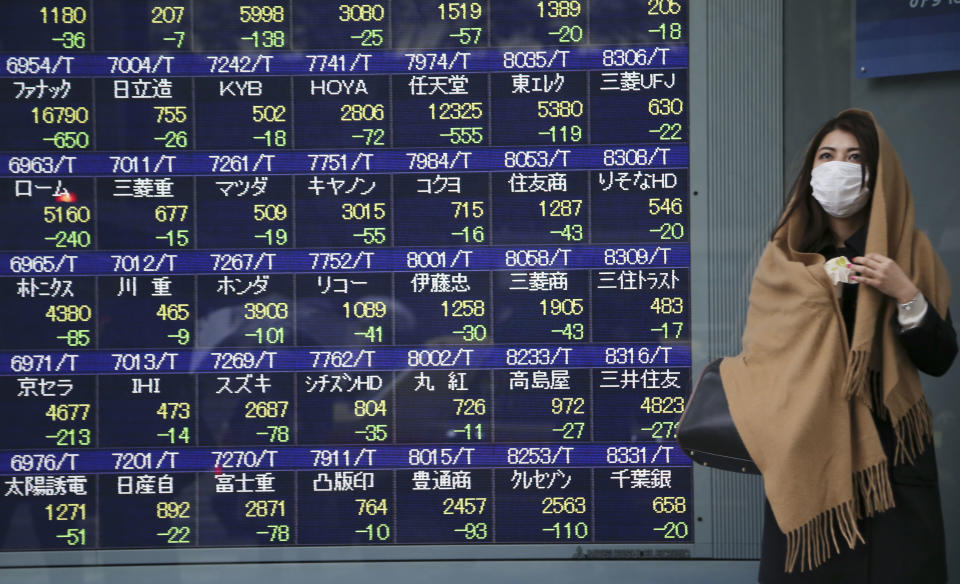World stocks slide on emerging market woes
LONDON (AP) — Global stock markets fell on Friday as concerns persisted over the outlook for emerging economies.
The financial markets in several developing countries have been shaken for the past week by concerns that growth will slow and money will flow out of their economies as the U.S. Federal Reserve tightens its monetary policy, draining on global liquidity.
The Turkish lira and the South African rand fell on Friday before recovering somewhat. The Hungarian forint and Russian ruble were less resilient, trading down 0.7 percent and 0.5 percent against the dollar by the end of the European trading day.
Investors are worried that the jitters in emerging markets will hurt those economies, which have been among the fastest-growing in recent years.
In Europe, Germany's DAX fell 0.6 percent to close at 9,322.33 while France's CAC-40 fell 0.2 percent to 4,170.02. Britain's FTSE 100 dropped 0.5 percent to 6,509.26.
Wall Street traded lower as well, with the Dow down 0.8 percent at 15,727.91 and the S&P 500 down 0.5 percent at 1,784.70.
European markets were further weighed by news that the inflation rate in the 18-country eurozone dropped to 0.7 percent in December from 0.9 percent the previous month. That is far below the European Central Bank's target of just under 2 percent and has raised expectations of a rate cut next week.
The "data maintain the pressure on the ECB to do more to ward off deflation risks, perhaps as soon as next week," said Jonathan Loynes, chief European economist at Capital Economics.
The possibility of looser monetary policy weighed on the euro, which was trading down 0.4 percent at $1.3501.
Earlier, in Asia, many markets were closed for the Lunar New Year holidays.
Japan's Nikkei 225, the main index still trading, reversed early gains that were sparked by reported increases in inflation and factory output. Inflation is a possible sign of economic recovery in Japan, which has been plagued by falling prices during two decades of stagnation.
But a rise in the yen against the U.S. dollar was negative for exporting stocks, dragging the Nikkei down 0.6 percent to 14,914.53. The dollar was down 0.5 percent against the yen, at 102.23 yen.
Financial markets were closed in China, Hong Kong, South Korea, Taiwan, Indonesia, Singapore, Malaysia and the Philippines.
Among stock markets not observing the holiday, India's Sensex gained less than 0.1 percent and Thailand's SET was up 0.4 percent. Australia's S&P/ASX 200 added less than 0.1 percent and New Zealand's benchmark gained 0.5 percent.
Benchmark U.S crude for March delivery was down 36 cents at $97.87 a barrel in electronic trading on the New York Mercantile Exchange. The contract gained 87 cents on Thursday.




